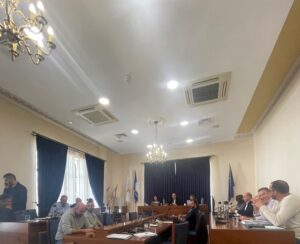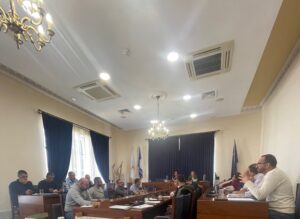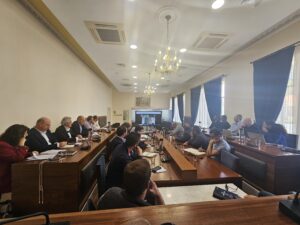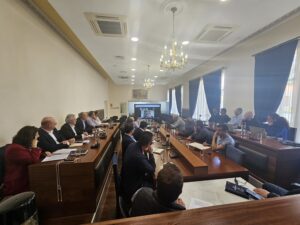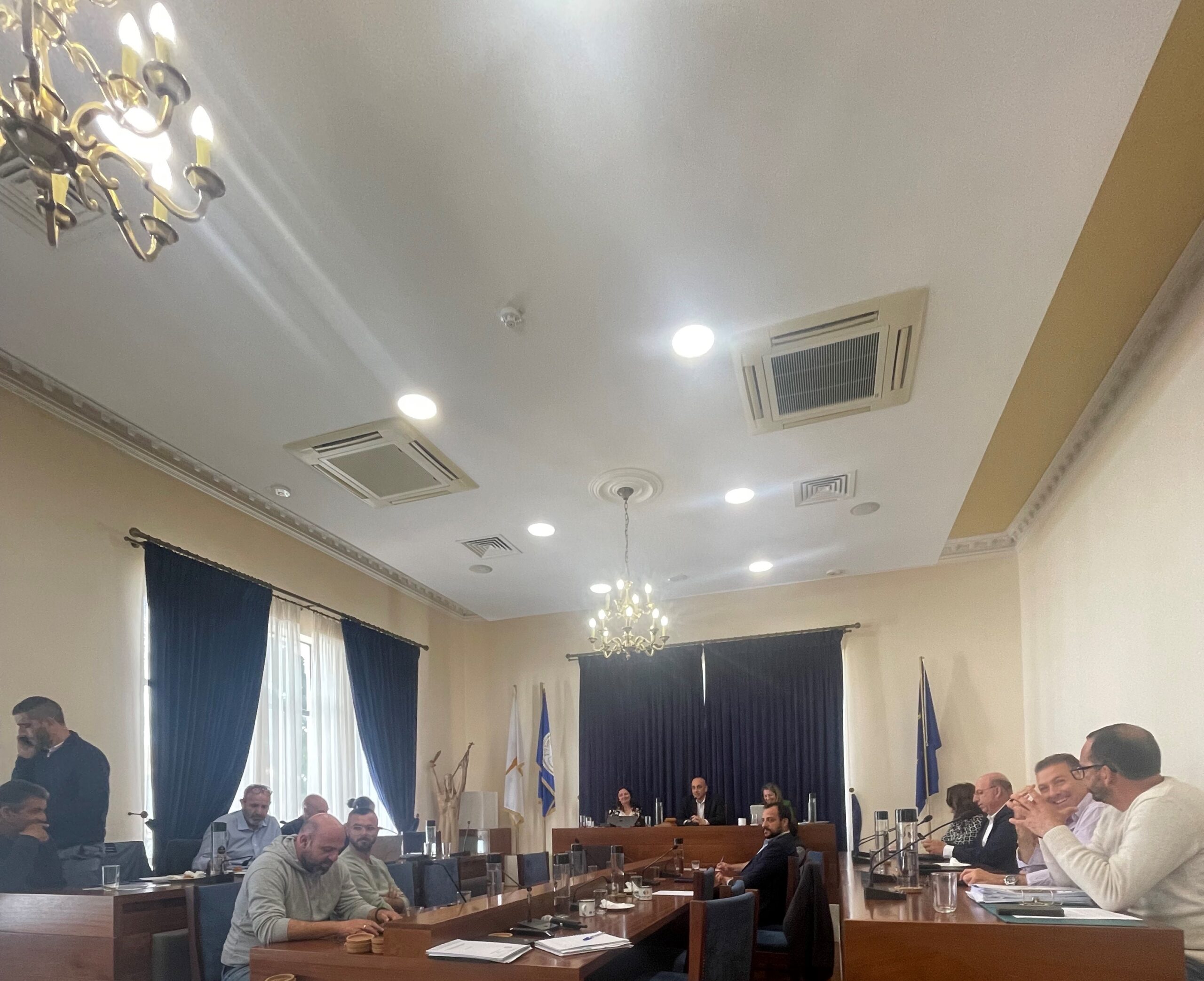On April 4, 2025, a meeting was held at the Paphos Town Hall, coordinated by the Department of Environment, where a study was presented concerning the creation of a unit for managing source-separated organic and green waste in the Paphos District.
The proposed facility aims to meet the needs arising from the implementation of the Pay As YouThrow (PAYT) system for the organic fraction of municipal solid waste, under the assumption that the residual waste stream will be directed to the Integrated Waste Management Facility (IWMF) in Pentakomo.
Participants in the meeting included representatives from the Department of Environment, the National Technical University of Athens, the Municipalities of Paphos, Geroskipou, and Polis Chrysochous, the Paphos District Local Government Organization, the Directorate-General for Environment, the Water Development Department, the Paphos Landfill (X.Y.T.A.) and Community Leaders from the surrounding regional clusters.
The session began with a presentation of the main technical characteristics of the proposed facility, including its processing capacity, the structure of its various components (e.g., reception, mechanical pre-treatment, biological treatment, refining), and the necessary supporting infrastructure (e.g., fencing, safety equipment, fire protection measures).
Special emphasis was placed on the operation of the unit and the hybrid nature of the technology planned for processing the source-separated organic fraction.
At the heart of the facility is a biological reactor designed to operate primarily under anaerobic conditions to produce biogas for energy recovery, alongside high-quality compost. Due to its hybrid design, the reactor can also operate under aerobic conditions when necessary, especially during the initial stages of operation when incoming volumes of clean, source-separated organic material may be limited.
The participants were then informed about the energy recovery options for the biogas produced from anaerobic digestion, including:
- Cogeneration of electricity and heat via a combined heat and power (CHP) unit,
- Upgrading biogas to biomethane and compressing it to produce Compressed Natural Gas (CNG) suitable for vehicle use, and
- Upgrading biogas to biomethane and liquefying it to produce Liquefied Natural Gas (LNG), which can be used for heavy vehicles, maritime transport, or even export.
For each of these options, estimated capital (CAPEX) and operational (OPEX) costs were presented, based on two gate fee pricing scenarios, to support informed decision-making by the involved stakeholders.
The session concluded with a constructive dialogue, during which participants had the opportunity to ask questions, express concerns, and offer suggestions. It was underlined that further scenario development is needed to enhance strategic planning and informed decision-making regarding the optimal energy recovery method and the overall operation of the proposed Anaerobic Digestion Unit. Although the LNG production scenario emerged as technically and economically promising, it was emphasized that additional factors must be carefully considered such as the gradual achievement of the projected capacity, the quality and consistency of incoming material and issues of local development and environmental management.
The study was conducted by the National Technical University of Athens within the framework of Action A2 “Preparatory, Technical and Economic Studies” of the LIFE IP Zero Waste Cyprus Project.
Implementation of the project is expected to be funded under the “THALIA 2021–2027” Programme. The presentation was delivered by Dr. Efi Tritopoulou, Senior Researcher at the National Technical University of Athens.
The unit is expected to make a substantial contribution to the achievement of national circular economy goals, as defined in the National Waste Management Plan 2022–2028, as well as to energy independence, in line with the National Energy and Climate Plan (NECP 2021–2030), offering significant environmental, social, and economic benefits for Paphos, its neighboring communities, and Cyprus as a whole.
